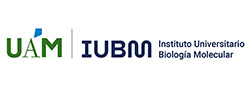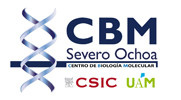Mitochondrial biology in immune modulation
Prof. Javier Traba Domínguez. Investigador Ramón y Cajal. Departamento de Biología Molecular. UAM.
The mitochondria are essential organelles that carry out diverse functions in the eukaryotic cell. In addition to ATP production by oxidative phosphorylation, they participate in many pathways such as heat production, calcium signaling, detoxification of reactive oxygen species, synthesis of heme and other molecules, and regulation of cell death. Emerging functions include their role in the regulation of innate and adaptive immune responses, which happens largely by two mechanisms:
1) The mitochondria regulate immunometabolism, which studies how the metabolism of the immune cell changes when they are activated or differentiate into effector cell, and how those metabolic changes are essential for their effector function. For instance, M1 or proinflammatory macrophages in culture are largely glycolytic, whereas M2 or reparatory macrophages utilize oxidative phosphorylation to meet their ATP requirements.
2) During dysfunction, the mitochondria—due to their prokaryotic origin—can produce and release molecules (mitochondrial DNA, formyl peptides, etc.) that activate diverse routes of innate immune signaling, such as the NLRP3 inflammasome or the cGAS-STING pathway. This leads to the secretion of proinflamatory cytokines, including interleukin-1β or type I interferons.
The mitochondria thus play a key role in immune regulation. The overarching goal of our group is to study the role of the mitochondria in the modulation of innate and adaptive immune pathways.
We are particularly interested in how posttranslational modifications (PTMs) of mitochondrial proteins—such as lysine acetylation or succinylation—will regulate the activation and polarization of the macrophage. For this project, we focus on the roles of mitochondrial nicotinamide adenine dinucleotide (NAD+)-dependent deacetylases (like Sirtuin 3, SIRT3) or desuccinylases (like Sirtuin 5, SIRT5). Indeed, we have recently found that SIRT3 controls the secretion of type I interferons, which are antiviral molecules.
In the laboratory, we also study the role of mitochondrial metabolites, including adenine nucleotides (adenosine mono-, di- or triphosphate) or NAD+, in the activation and differentiation of macrophages and T lymphocytes. As transport of metabolites across the inner mitochondrial membrane is carried out by proteins of the Mitochondrial Carrier Family, we are altering the expression of mitochondrial carriers specific for those metabolites in immune cells, including SLC25A24/SCaMC-1, a calcium-dependent mitochondrial transporter for ATP-Mg/Pi, and SLC25A51/MCART1, the recently identified mitochondrial transporter for NAD+.
Since autoimmune or degenerative diseases are associated with imbalances in macrophage polarity or lymphocyte lineage differentiation, the study of how mitochondrial metabolites affect the differentiation of immune cells, and its potential modulation by compounds such as NAD+ precursors, might be interesting for potential future therapies.


